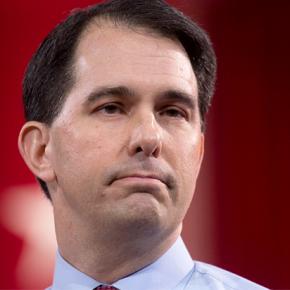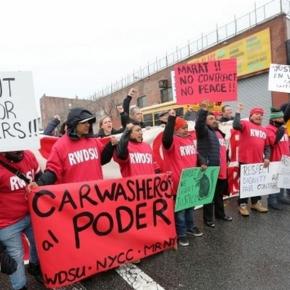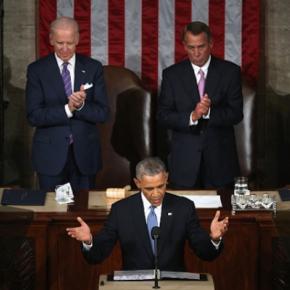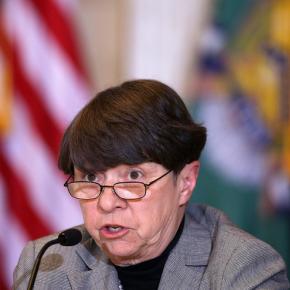Opioid protest at Harvard art museum
ctivists said that this was the fourth protest of its kind targeting an art gallery or school named after the Sackler family. The Sacklers have their names on spaces at the Louvre, the Royal...
ctivists said that this was the fourth protest of its kind targeting an art gallery or school named after the Sackler family. The Sacklers have their names on spaces at the Louvre, the Royal Academy of Arts, the Smithsonian, and the Guggenheim in New York, among others. The Center for Popular Democracy, the nonprofit that supports the Opioid Network, also participated in Goldin’s protest at the Smithsonian Institution’s Arthur M. Sackler Gallery in April.
Read the full article here.
Dreamers exigen “Dream Act” y replican a Kelly: “no somos flojos”

Dreamers exigen “Dream Act” y replican a Kelly: “no somos flojos”
En el marco de un día de acción nacional a favor del Dream Act, más de 500 activistas exigieron este miércoles que el Congreso apruebe la medida, y condenaron al jefe de Gabinete de la Casa...
En el marco de un día de acción nacional a favor del Dream Act, más de 500 activistas exigieron este miércoles que el Congreso apruebe la medida, y condenaron al jefe de Gabinete de la Casa Blanca, John Kelly, por sugerir que algunos jóvenes indocumentados no se apuntaron al “DACA” de 2012 por “flojos”.
Lea el artículo completo aquí.
Scott Walker Pushes Through “Right-to-Work” Law — and Labor Takes Another Hit
Salon - March 10, 2014, by Sarah Jaffe - The photos coming out of Madison, Wisconsin, this week have been both heartening and heart-wrenching.
Heartening, to see the...
Salon - March 10, 2014, by Sarah Jaffe - The photos coming out of Madison, Wisconsin, this week have been both heartening and heart-wrenching.
Heartening, to see the Capitol that was the site of the 2011 uprising that kicked off a wave of protests against austerity, injustice and inequality filled once again with protesters chanting, singing, holding signs. To see people who were part of that uprising, like Mandela Barnes, now standing in the Legislature as elected officials, denouncing Gov. Scott Walker and the Republican Party’s push for what is popularly known as “right-to-work,” despite having little to do with rights at work. To see a youth-led protest fill the Capitol rotunda with the chant that “Black Lives Matter.”
Heart-wrenching because the labor protests were much smaller than those in 2011, where tens of thousands clogged the Capitol building, slept in hallways and built libraries. Heart-wrenching because all of that uprising then was not enough to stop Scott Walker’s bill taking collective bargaining rights from public sector workers, and has not been enough to keep him from signing the no-rights-at-work bill into law. Heart-wrenching because another unarmed young man, Tony Robinson, is dead and no amount of protest will bring him or the hundreds of other victims of police violence back.
I am writing about these things together not simply because they happened in the span of a few days, but because their histories are deeply linked. As Jennifer Epps-Addison of Wisconsin Jobs Now tells Salon, “This generational poverty that is being inflicted, particularly on the black community in Milwaukee, is a form of state violence that desensitizes the rest of the Wisconsin community to these killings, and makes the rest of our state see a justification in these police murders.”
And what we now call “right-to-work” laws were spread in part by racist rhetoric that exploited already-existing divisions in order to pass laws that took rights away from all working people.
First, I should explain what these laws actually do. Legally, no worker can be forced to join a union. But if a union wins an election to represent the workers in a particular workplace (“shop”), the contract it wins through collective bargaining covers all of the workers in that shop, whether or not they voted for the union or signed up to pay dues to it. Accordingly, the law requires all workers covered by a union contract to pay a “fair share fee” to the union to cover the costs of representing them — not limited only to contract negotiations but also filing grievances and the like. What “right to work” does is give workers the “right” to the gains negotiated by the union without having to contribute anything at all to its costs.
These laws are designed to defund unions, pure and simple. They don’t make organizing impossible — the history of the Culinary Workers, UNITE HERE Local 226 in Nevada, attests to that. But they drain the coffers of unions, limiting their ability to do other political work or engage in organizing workers who don’t yet have a union.
The fact that we refer to these laws as “right-to-work” is one of the most successful branding operations the right has ever run, and labor has struggled to come up with an answer for it. Yet for years these laws were mostly limited to the South and Southwest, where race-baiting (and Red-baiting) had helped them succeed.
Before they were “right-to-work” laws, the name was, if possible, even more Orwellian: “The American Plan,” as Mark Ames notes, not so subtly aligning unions with things un-American, Communist and not white. (Think of people shouting about Obama’s birth certificate, and you’ll get the gist.) But “right-to-work” was the name that stuck, giving a rights-conscious, progressive-sounding name to a bill sold with virulently racist campaigns that promised to uphold “the color line.” Chris Kromm of the Institute for Southern Studies explains:
“Muse and the Christian American Association saw danger. Not only were the unions expanding the bargaining power — and therefore improving the wages and working conditions — of working-class Texans, they also constituted a political threat. The CIO in particular opposed Jim Crow and demanded an end to segregation. Unions were an important political ally to FDR and the New Deal. And always lurking in the shadows was the prospect of a Red Menace, stoked by anti-communist hysteria.”
And as historian Elizabeth Tandy Shermer points out, in some campaigns for these laws, proponents specifically targeted black voters, arguing that union shops kept out black workers and that “right-to-work” would open up jobs for them. (A similar tactic was used in the deregulation of the port trucking industry, where promises of “diversity” were part of a push to turn steady union jobs into poverty-wage “independent contracting” gigs compared to “sharecropping on wheels.”)
The labor movement has been contending for decades with the ramifications of its checkered history on racism. The exclusion of certain workers from New Deal labor protections has come around to haunt labor as more and more jobs now emulate the working conditions of 1940s farmworkers and domestic workers. The fall of Indiana, Michigan and now Wisconsin to “right-to-work” (and the flood of articles misrepresenting just what it is that RTW laws do) should remind us, if we needed the reminder, that legislated inequality will never remain tied to one region or to one kind of worker.
Wisconsin’s 2011 uprising centered around Scott Walker’s successful move to take collective bargaining away from public sector workers (and notably for today’s anti-police-violence movement, allowed cops to keep their rights). The public sector has historically been a place where black workers could get access to decent union jobs that were relatively protected from the racism that they faced in the private sector; the attacks on public-sector union rights were attacks that disproportionately hurt workers of color.
But Walker promised that he didn’t want right-to-work, though many observers figured that to be a line from the get-go, and he managed not only to stave off the recall that the pro-labor movement forced, but to see himself reelected. And now, safe in his second term, he has broken what some workers considered a promise.
The movement, though, continues. On Wednesday, March 11, as part of a national “We Rise” day of action that is slated to include more than 20 events in 16 states, Wisconsin workers and their supporters, organized by groups including the Young, Gifted and Black Coalition, Ferguson to Madison, Youth Empowered in the Struggle, and Wisconsin Jobs Now, will come together to draw connections between attacks on union rights, growing poverty, mass incarceration and state violence. Jennifer Epps-Addison explains,
“This action was planned before the murder of Tony Robinson. The real goal for the action was to lift up the voices of young people, of people of color, of nonunion workers in this movement for economic and racial justice, particularly in light of right to work and the impact of right to work on those communities.”
The death of Tony Robinson has reminded Madison that even liberal cities are built on a history of segregation and denial of rights to their black residents. Wisconsin, Epps-Addison notes, has the highest incarceration rate for black men in the entire country. And, she points out, the systemic divestment from schools and services in communities of color is itself a form of state violence.
That’s why Wednesday’s event, she emphasizes, will not just be a rally. It will include direct actions targeting employers engaged in wage theft and demanding the immediate release of people who are incarcerated simply because they cannot afford to pay fines. “Our march really is on both, on the institutions that perpetuate these systemic problems, the corporations that benefit from them, and Governor Walker himself,” she says.
It will not be an easy fight in Wisconsin or anywhere else — Scott Walker is already trumpeting his victories over union workers as a foreign policy qualification that prepares him to take on ISIS, and Democrats all too often acquiesce to a kinder, gentler version of austerity. But the coming together of movements for justice in the workplace and the home and the streets to demand a comprehensive agenda for a more just state and society is a development worth celebrating even in dark times. There is building going on behind those dramatic photos from the Capitol.
To move forward, Epps-Addison says, “We fundamentally believe we can’t bring back progressive power in Wisconsin by giving people a Republican-like agenda. What we need to do is make our case and build relationships between working-class white folks outstate, between communities of color in Milwaukee, Madison and Racine, to understand that we’re all in this together, and that these forms of institutional classism and racism impact everyone.”
Source
Reporte revela robo de salario sistemático en NY
NUEVA YORK — Un estimado de 2.1 millones de neoyorquinos son víctimas de robo de salario al año, lo que implica una suma de $3.2 mil millones en pagos y beneficios, según el reporte “...
NUEVA YORK — Un estimado de 2.1 millones de neoyorquinos son víctimas de robo de salario al año, lo que implica una suma de $3.2 mil millones en pagos y beneficios, según el reporte “By a Thousand Cuts: The Complex Face of Wage Theft in New York” delCenter for Popular Democracy Action (CPDA).
El estudio, calificado como el más completo desde 2009 por organizaciones defensoras de los derechos de los trabajadores, se fundamenta en entrevistas a expertos, quejas de víctimas de robo de salario, resultados de investigaciones recientes y estadísticas de los sindicatos más representativos.
Los hallazgos del CPDA sugieren que los empleadores recurren a métodos difíciles de detectar, probar y erradicar, como minutos no registrados en los relojes del lugar de trabajo, una deducción del 5% por cada propina y salarios por debajo del mínimo.
Un análisis de las estadísticas más recientes –diciembre de 2014- del Departamento de Trabajo de Estados Unidos (USDOL) encontró que en 2013, unos 12.700 trabajadores del estado de Nueva York recibieron un total de $23 millones en reembolsos por salarios robados, lo que representasólo el 2% del total de $1 mil millones en salarios robados para ese año.
Los autores del reporte, que estudiaron 11 casos específicos de trabajadores, encontraron que el estado de Nueva York pierde hasta $20 millones por semana en violaciones cometidas por empleadores que no pagan el sueldo mínimo.
Los trabajadores más vulnerables son aquellos que trabajan frecuentemente jornadas de más de 40 horas a la semana. Según la ley, los empleadores deben pagar una hora y media por cada hora extra luego de las 40 horas a la semana, pero en 2010 el 77% de los trabajadores de bajos ingresos no recibieron esta compensación, según un estudio del National Employment Law Project (NELP) citado por los autores.
El mexicano Ángel Rebollero (53), quien en octubre de 2014 alzó la voz por mejores condiciones de trabajo en Vegas Auto Spa, en Park Slope, contó que por casi una década no recibió el pago mandatario por las horas extras trabajadas.
“Los trabajadores inmigrantes somos los más expuestos a empleadores inescrupulosos, pero nuestras victorias laborales demuestran que unidos podemos cambiar las condiciones indignas en el lugar de trabajo”, comentó. “Muchos fuimos amenazados con la deportación. El miedo puede hacernos callar, pero no siempre estaremos en las sombras sufriendo el abuso”.
El reporte de la CPDA encontró que los empleadores comúnmente recurren a la intimidación, acoso, represalias y falsificación de récords de pago para perpetrar un robo de salario sistemático. Otro método común es la clasificación errónea de sus empleados como contratistas independientes, a fin de evitar el pago de impuestos sobre la nómina de sus empleados.
El Servicio de Impuestos Internos (IRS) estima que los empleadores clasifican erróneamente a millones de empleados cada año en el país, evitando en promedio cerca de $4.000 en impuestos federales por cada trabajador.
El CPDA advirtió de la reincidencia en las violaciones de las leyes laborales como un factor difícil de erradicar en la lucha por los derechos de los trabajadores. En los últimos cinco años, el USDOL ha registrado cerca de 400 casos de robo de salarios en el estado de Nueva York, en los cuales el empleador reincidió en las infracciones de las leyes que protegen a los empleados más vulnerables.
Entre los casos que analiza el reporte destaca el de los “carwasheros” de Vegas Auto Spa, quienes estuvieron expuestos a condiciones inseguras de trabajo y robo de salario.
Source: El Diario
Listen to Death Cab for Cutie’s New Anti-Trump Song “Million Dollar Loan”

Listen to Death Cab for Cutie’s New Anti-Trump Song “Million Dollar Loan”
Last year, Death Cab for Cutie released the album Kintsugi. Today, the band have put out a new song called “Million Dollar Loan,” along with its video, directed by Simian Design. The song targets...
Last year, Death Cab for Cutie released the album Kintsugi. Today, the band have put out a new song called “Million Dollar Loan,” along with its video, directed by Simian Design. The song targets Republican presidential nominee Donald Trump, who famously said his father gave him $1 million to start his business dealings. It’s part of a new program called 30 Days, 30 Songs, created by writer Dave Eggers. Starting today until Election Day (Tuesday, November 8), there will be new songs each day from artists including My Morning Jacket’s Jim James, Aimee Mann, Thao Nguyen (of Thao & the Get Down Stay Down), and clipping. In addition, 30 Days will include an unreleased R.E.M. live song.
Below, listen to “Million Dollar Loan,” read Ben Gibbard’s statement on the track, and see the 30 Days, 30 Songs single artwork (featuring an eagle with Trump’s hair). Read 30 Days, 30 Songs’ mission statement here. All of 30 Days’ proceeds will go to the Center for Popular Democracy and their efforts toward Universal Voter Registration for all Americans.
Lyrically, “Million Dollar Loan” deals with a particularly tone deaf moment in Donald Trump’s ascent to the Republican nomination. While campaigning in New Hampshire last year, he attempted to cast himself as a self-made man by claiming he built his fortune with just a “small loan of a million dollars” from his father. Not only has this statement been proven to be wildly untrue, he was so flippant about it. It truly disgusted me. Donald Trump has repeatedly demonstrated that he is unworthy of the honor and responsibility of being President of the United States of America, and in no way, shape or form represents what this country truly stands for. He is beneath us.
By Matthew Strauss
Source
Aldermen, Activists Propose City Ordinance To Raise Minimum Wage
Chicagoist - May 28, 2014, by Aaron Cynic - Supporters of raising the minimum wage introduced an ordinance at a City Council meeting today that calls for an increase to $15 an hour. The proposal,...
Chicagoist - May 28, 2014, by Aaron Cynic - Supporters of raising the minimum wage introduced an ordinance at a City Council meeting today that calls for an increase to $15 an hour. The proposal, backed by several Aldermen including John Arena, Joe Moreno and Roderick Sawyer, comes on the heels of a report released that shows a raise in the wage would benefit both workers and the City’s economy.
According to the plan, companies making more than $50 million a year would be required to first raise their minimum wage to $12.50 an hour within 90 days and then to $15 within a year. Smaller businesses would have to raise their wages at a more graduated rate, with a total of four years to get to $15. From there, the minimum wage in Chicago would rise with the rate of inflation.
“Study after study demonstrates that when you put money into the pockets of consumers, they spend it," Alderman Ricardo Munoz, who also backs the measure, told Reuters. "They don't hoard it in their mattresses.”
The recent report from the Center for Popular Democracy says a minimum wage increase would yield workers about $1.1 billion collectively, with an average annual income increase of $2,620 per individual. This would generate $74 million in personal income taxes to the state and yield $616 million in new economic activity.
At a press conference at City Hall, Tanika Smith, a fast food worker, said her current pay of $8.75 an hour, just 50 cents more than the minimum wage in Illinois, simply isn’t enough. “My car note is $500 a month, my rent is about $500, food is going up, lights are going up,” said Smith.
Raising the minimum wage is becoming a key issue with politicians statewide. Last week, Mayor Rahm Emanuel gave a panel of business, labor and civic leaders 45 days to draft a plan to raise the wage in Chicago. Gov. Pat Quinn has championed raising the state wage to $10.65 an hour, and Illinois House Speaker Michael Madigan is pushing for a referendum on the November ballot to ask voters if the wage should be raised to $10 an hour.
Both the Illinois Chamber of Commerce and Illinois Retail Merchant’s Association oppose an increase to the minimum wage. “We think it puts us at a competitive disadvantage,” Chamber CEO Theresa Mintle told Reuters. The Retailers Association has said that raising the wage would force businesses to cut both jobs and hours.
Ald. Moreno, however, disagrees.
“It’s gonna hurt the people at the top possibly. It’s not gonna hurt business. It never has. Raising the minimum wage in the United States has never, ever hurt the broader economy...Our economy has been splintered with those at the top having way more. The middle class is shrinking. We want the middle class to grow.”
Source
Health industry giants get tax windfall. But it's unclear how it will be used.*

Health industry giants get tax windfall. But it's unclear how it will be used.*
The man with ALS, or Lou Gehrig's disease, who caught national attention for confronting Sen. Jeff Flake (R-Ariz.) last year about the Republican tax bill, has launched a new “Be a Hero” campaign...
The man with ALS, or Lou Gehrig's disease, who caught national attention for confronting Sen. Jeff Flake (R-Ariz.) last year about the Republican tax bill, has launched a new “Be a Hero” campaign targeting Republicans. In a new minute-long TV and online ad running ahead of an April 24 election in Arizona’s 8th congressional district, Ady Barkan slams Republicans for pushing tax legislation that could affect his health care if lower tax revenue leads to eventual federal benefit cuts.
Read the full article here.
Barkin Tapped as Next President of Richmond Fed Bank

Barkin Tapped as Next President of Richmond Fed Bank
The Federal Reserve's Richmond regional bank announced on Monday that Thomas Barkin, a senior executive at global management consulting firm McKinsey & Co., will be the bank's next president...
The Federal Reserve's Richmond regional bank announced on Monday that Thomas Barkin, a senior executive at global management consulting firm McKinsey & Co., will be the bank's next president.
He will succeed Jeffrey Lacker, who resigned as the bank's president in April after revealing his involvement in a leak of confidential information in 2012 that had triggered congressional and FBI investigations.
Read the full article here.
State of the Union 2015 Address Response: National Groups Respond to Obama on Immigration, Economy, Climate Change and Racial Inequality
Latin post - January 21, 2015, by Michael Oleaga - The National Association of Latino Elected and Appointed Officials (NALEO) welcomed Obama's efforts to improve the economy and education for...
Latin post - January 21, 2015, by Michael Oleaga - The National Association of Latino Elected and Appointed Officials (NALEO) welcomed Obama's efforts to improve the economy and education for Latinos, and all other Americans.
"These policies can allow more Latinos to rebound from the economic troubles experienced in recent years and pursue their piece of the American Dream, resulting in a more skilled work force and an expanded middle class that is able to 'do their fair share' and fully contribute to our nation's prosperity," added NALEO in a statement.
On immigration, NALEO said passing comprehensive immigration reform, which should include a pathway to citizenship, will help undocumented immigrants integrate with U.S. life and contribute to the growing economy and shrinking deficit.
"Action to bring immigrants who have played by the rules fully into our economy and democracy is not only the right thing to do, but also the smart thing to do," added NALEO. "Immigrants who learn English can on average quadruple their annual incomes, resulting in increased revenues at the state and federal level and a more skilled workforce that will reinforce our ability to prosper in the new global economy."
The American Federation of Labor and Congress of Industrial Organizations (AFL-CIO), the largest organization comprising of unions, commended the president for advocating for working families.
"The President's focus on raising wages through collective bargaining, better paying jobs, a fairer tax code, fair overtime rules, and expanded access to education and earned leave sent the right message at the right time," said AFL-CIO President Richard Trumka. "So did his embrace of union apprentices and immigrants who want to achieve the American Dream. The President has again demonstrated his strong commitment to creating an economy that truly works for all working people."
Trumka said income inequality remains one of the biggest challenges despite the world's wealth being in "the hands of a very few." He also said the time has come for Congress to address minimum wage.
On climate change, 350.org, an organization which address the issue and opponent of the Keystone XL pipeline, gave their support for the president.
"He said we need to think beyond a single pipeline, and made a strong case for developing sustainable, clean energy sources like wind and solar," said 350.org Executive Director May Boeve. "The President is clearly beginning to think about his climate legacy, and he clearly understands that it depends on rejecting Keystone XL."
Boeve said this year's State of the Union address was a vast improvement compared to previous speeches, specifically the 2011 address which had no mention of climate change. She acknowledged climate change was addressed among a few paragraphs and attributed to last September's People's Climate March for increasing awareness of the issue.
Center for Popular Democracy Co-Executive Director Ana Maria Archila applauded Obama's progress but said a "range of daunting crises" still exists for U.S. workers, communities of color and immigrants. Archila noted the crises include climate change, racial injustice, and immigrant and workers' rights.
"The president's speech barely addressed racial inequalities and the discriminatory policing that threatens far too many communities of color," said Archila. "The president was right to point out 'different takes on Ferguson and New York,' but families of color who wonder if they, and their children, are safe when crossing paths with the police need stronger national leadership to confront police impunity."
Archila recognized Obama's emphasis for a higher federal minimum wage, child care, and paid sick leave for working families. She added that full-time workers should not be stuck in poverty or encounter the inhumane choice between a paycheck and caring for their family.
"We commend the president for speaking from the right place and with the right intentions. We will continue to fight to build an innovative, pro-worker, pro-immigrant, racial and economic agenda. The work ahead of us is real, and we are moving forward," said Archila.
Source
Activists to SEC’s White: Step aside on audit regulator appointment
A national coalition of 14 organizations told Mary Jo White, chairwoman of the Securities and Exchange Commission, to take herself out of the selection process for the next chair of the Public...
A national coalition of 14 organizations told Mary Jo White, chairwoman of the Securities and Exchange Commission, to take herself out of the selection process for the next chair of the Public Company Accounting Oversight Board, the audit regulator.
In a letter sent on Thursday the signers said they believe there’s a conflict of interest created by her decision on an issue that will impact her family’s income. That’s because John White, her husband, is a member of the PCAOB’s Standing Advisory Group, selected by the board of the PCAOB, who are in turn chosen by the SEC and White.
The conflict has existed ever since White was approved as SEC chairwoman. Her spokeswoman told MarketWatch in September that her husband’s role in the PCAOB group was reviewed when she first took the job, and then again when the first PCAOB board appointment during her tenure was required. The conflict rose to the surface in early September, when Bloomberg reported that White was considering potential candidates to replace PCAOB Chair James Doty.
Doty has signaled he would like to return for another term but his industry reform-minded tenure has caused some, including at the SEC, to criticize his tenure. Critics say progress on the “nuts and bolts” of the agency is slow because of Doty’s preoccupation with larger industry-level initiatives focused on greater accountability and transparency for auditors and audits.
Bloomberg’s coverage of the conflict, and White’s admission that she was shopping for alternatives to Doty, led John White’s law firm, Cravath, Swaine & Moore, to remove marketing-type references to White’s position on the SAG from its website the following day, as reported by MarketWatch.
The organizations are the Alliance for a Just Society, American Family Voices, Campaign for America’s Future, Center for Effective Government, Center for Popular Democracy, Community Organizations in Action, Communications Workers of America, Democracy for America, Main Street Alliance, The Other 98%, Public Citizen, RootsAction, Rootstrikers and MoveOn.org Civil Action.
Source: MarketWatch












2 months ago
2 months ago